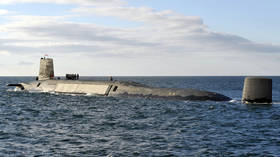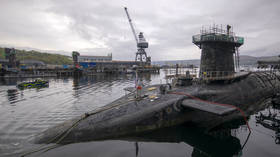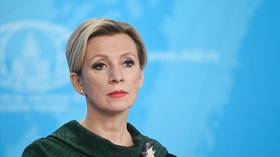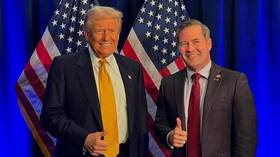Going nuclear: UK set to boost Trident warhead stockpiles by 40%, detonating outrage among activists & observers

Activists and commentators have accused British Prime Minister Boris Johnson of turning his back on disarmament after his government signalled that it would drastically increase the limit placed on the UK’s nuclear stockpile.
Johnson is poised to announce on Tuesday that the cap on the number of Trident nuclear warheads in the UK’s arsenal will be raised by a staggering 40%.
The policy would change the number of warheads Britain can possess from 180 to 260. Trident warheads are loaded onto ballistic missile submarines as part of the UK’s nuclear deterrence strategy, and at least one nuclear-armed sub is always on patrol. Foreign Secretary Dominic Raab defended the decision, describing it as the “ultimate insurance policy” against threats from hostile states.
According to the Guardian, a 100-page security review inked by the government states that the increase in the nuclear warheads cap is a response to “the evolving security environment” and “the developing range of technological and doctrinal threats” to the country. Russia was deemed an “active threat” to the UK, while China was described as posing a “systematic challenge.” The document also warned that there is a “realistic possibility” that a terrorist group will carry out a chemical, biological or nuclear attack by 2030.
The policy shift sparked anger from activists, pundits and social media observers.
Kate Hudson, the general secretary of the Campaign for Nuclear Disarmament, told the Guardian that it was senseless of the cash-strapped government to pursue “grandiose, money-wasting spending on weapons of mass destruction”.
Hans Kristensen, director of the Nuclear Information Project, part of the Federation of American Scientists, said it was “deeply” disappointing to see Britain “end its nuclear weapons reduction policy and instead join the nuclear arms race by increasing its nuclear weapons stockpile.”
Shocking that government will announce increase in nuclear warheads in the midst of a pandemic and climate crisis. We don’t want any more nuclear weapons. In fact, we don't want any. #ScrapTridenthttps://t.co/6wNBBBEBU0
— CND (@CNDuk) March 15, 2021
Others reacted to the news by demanding that the UK government explain how allowing for an increase in the nuclear stockpile would keep the country safer.
“Say goodbye to life on earth if they let ONE of those off,” read one of many disapproving comments.
Even if you believe in nuclear deterrents Trident is the wrong option. Few politicians are brave enough to say it. My dad, (ex nuclear submarine Captain) explains why: https://t.co/b5QAoH4qnd @BBCJLandale @dansabbagh https://t.co/7IaPujNC1F
— Justin Forsyth (@justinforsyth) March 16, 2021
Although billed as necessary to ensure Britain’s safety, the Trident program has been regularly criticized as needlessly expensive and poorly managed. In October, A Navy officer responsible for his submarine’s nuclear missiles reportedly showed up for duty drunk during a port call in the US.
Like this story? Share it with a friend!















